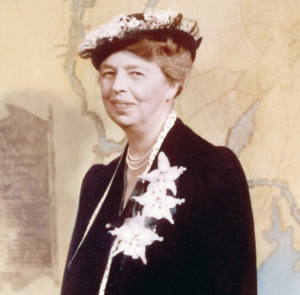Perspective | My Mother Ran an Illegal Kindergarten in Iran
The Iranian regime allows a few hours of English classes per day but forbids teaching classes like math, ballet, or music in English except in schools affiliated with foreign embassies. My mother’s subversive, entrepreneurial solution was to turn our family home into an undercover school. She made a profit by defying the regime.

Image Credit: iStock
Between the ages of seven and thirteen, I lived in an illegal kindergarten in Tehran, Iran. I know what you’re thinking. No, it wasn’t a child labor facility. Quite the contrary, my mother ran a high-end English learning center that offered a variety of classes, services, and care unlike any other in Tehran. What made it illegal was that everything was taught in English. The Iranian regime allows a few hours of English classes per day but forbids teaching classes like math, ballet, or music in English except in schools affiliated with foreign embassies. My mother’s subversive, entrepreneurial solution was to turn our family home into an undercover school. She made a profit by defying the regime.
Things started small but rapidly escalated, with waiting lists of 100+ students, 40+ staff members, and an unbeatable level of service. She had a monopoly and charged high rates. However, since the business operated from our house, the children saw it as a second home, and the parents, as a response to the amount they were paying, treated it as a “hangout spot.” This is where things got complicated. In Iran, men and women are not allowed to have mixed gatherings unless women wear a hijab, which we, the staff, and these elite mothers, were not. This put a target on the kindergarten, leading to police raids, closures, and the paying of bribes. This was the norm during my upbringing in Iran.
Paradoxically, a kindergarten was a toxic and corrupting living environment to grow up in. It wasn’t just the stresses around the illegality of my mother’s business. It was the people. From the age of nine, I was exposed to a world of scandals involving some of the most entitled, unethical, promiscuous people I have ever encountered–the parents. Government officials. Company executives. The supposed upper echelon of Tehran society. I soon learned that the higher their socio-economic status, the more horrid their behavior. Women who loved nothing more than to spread rumors. Men who loved nothing more than to spread legs. No one paid attention to the kid in the room, and as young as I was, I learned about their backgrounds, affairs, and bankruptcies. This probably explains why I went into criminology and psychology. I’ll never forget the time a parent, whose own past involved a fatal affair with her sister’s husband, tried to take advantage of my innocence and extract information about another mother’s health condition. Astonished, I replied, “I have no idea,” and fled.
In this microcosm of Iranian high society, I witnessed first-hand how corrupt our country’s elites are. If these people are the most well-educated, well-traveled, cultivated members of society, what hope do we have? It is because of people like this within our government and the current political climate that so many Iranians that have the means to do so have left the country. I am one of the lucky few to have both British and American citizenship, but what about those who don’t? Many families have split apart and scattered around the world; Iranians move to any place they can obtain a visa.
But what if educated, solvent Iranians didn’t need to leave? What if my brother didn’t need to move to the US at age 16 to avoid mandatory military service for an oppressive regime? What if I didn’t need to move for my higher education? Would we have stayed? To be honest–of course. Though it came to resemble a tawdry reality show, my mother’s business also bankrolled our exceptionally privileged life in Iran–one that is unattainable in most other countries. I admit, I am grateful to have benefitted from the private teachers, drivers, and nannies, the endless gymnastics, karate, ballet, violin, and art classes, and the chance to travel all over the world.
Yet even I, one of the lucky few in terms of privilege, had to leave to advance my education, pursue my desired career, and enjoy personal liberty. My heart aches for the brilliant Iranians who don’t have the means to leave–whose skills, talents, and freedoms are suppressed by the countless restrictions placed on them.
It is true that the kindergarten succumbed to the excesses, backstabbing, and ethical collapse that often afflict elites in every society. But it was also an oasis in Tehran and a form of resistance. Looking back, I now see why the parents used our house as a country club. They felt like they weren’t in Iran.
Nicky Kashani is a criminology and psychology graduate, and current masters student at NYU. Her research interests are drug policies, stigmatization, and labeling. For her undergraduate dissertation, she conducted a preliminary investigation of Oregon’s drug policy reform, and assessed the processes, benefits, and adverse effects of the decriminalization of illicit drugs. More recently, she has discovered a passion for journalism and has begun writing about current events in Iran. She is also an assistant editor at Caustic Frolic, an interdisciplinary journal that publishes fiction, nonfiction, poetry, art, and digital and mixed media. She looks forward to further pursuing journalism in the near future.







Nicky was brilliant as a child knowing at a very young age what she wanted to become. I am amazed and proud to see that she succeeded in doing what she wanted. I m looking forward to reading your articles beautiful Nicky
A true story about every iraninan guy who’s willing to establish a right and professional mechanism in order to raise social awareness and make the country a better place…thank you for that
Well written. Smart and unique perspective. It couldn’t be more realistic than this.
It is so interesting what is Nicky’s perspective from that days. So so interesting. I believe Nicky will be a wonderful journalist soon. She is just bright.